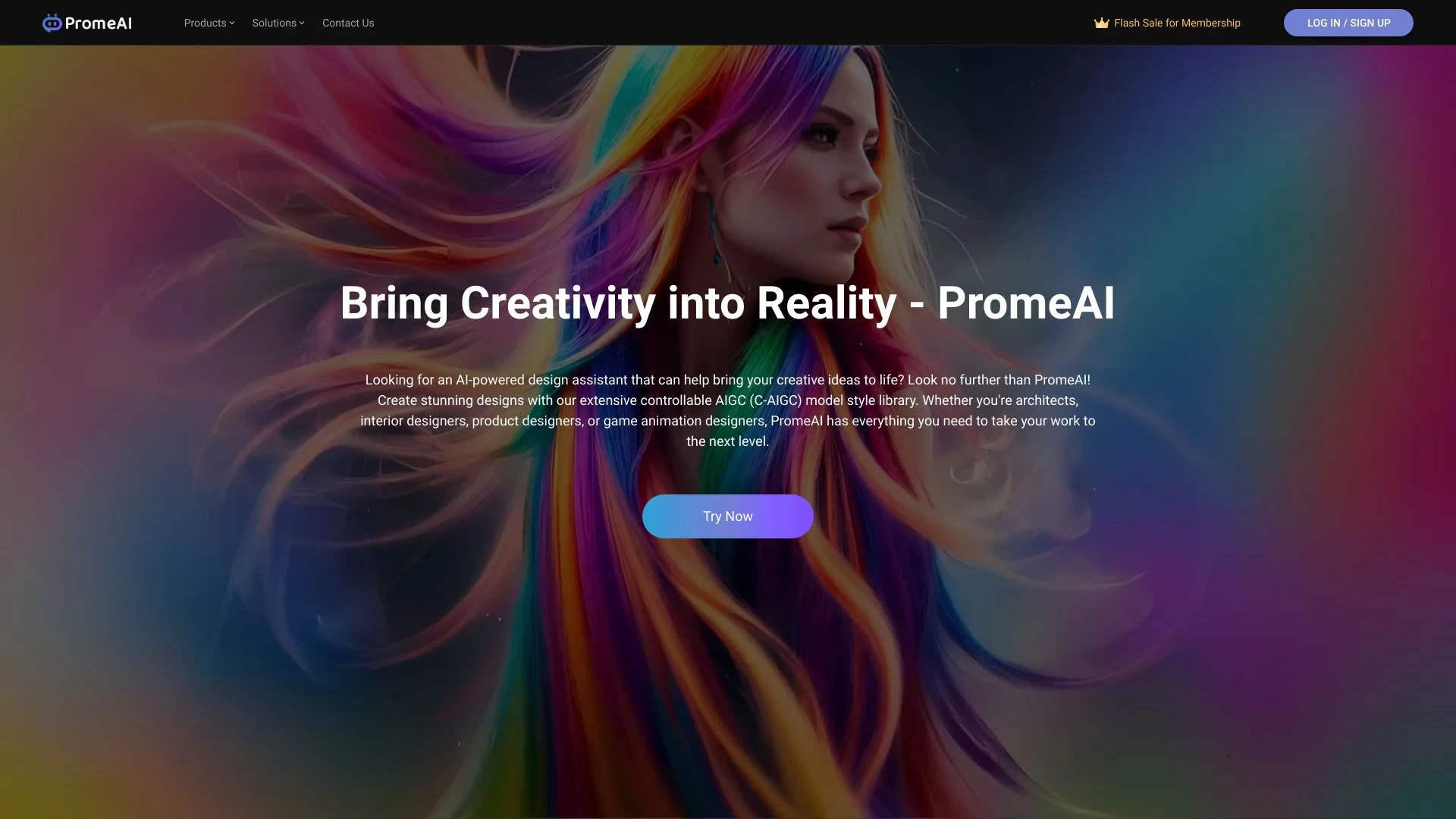PromeAI versus Promethean AI
PromeAI focuses on enhancing creative workflows by providing tools for generating AI-driven designs, targeting professionals in graphic design and advertising. In contrast, Promethean AI, launched in 2018, specializes in 3D content generation for the gaming and film industries. Both aim to streamline creative processes, serving distinct yet overlapping audience segments in digital arts.


PromeAI
Ideal For
Amateur artists seeking to enhance their skills
Architects visualizing design concepts
Interior designers creating space layouts
Product designers showcasing prototypes
Key Strengths
Access to advanced design capabilities
Cost-effective with freemium model
User-friendly interface for quick learning
Core Features
AI-driven design assistance
Controllable AIGC model style library
Creation of art, images, graphics, videos, and animations
User-friendly interface
Suitable for various design purposes
Promethean AI
Ideal For
Video game development
Architectural visualization
Environment art creation
Creating virtual worlds
Key Strengths
Enhances creative workflows
Automates repetitive tasks
Supports collaboration through custom asset features
Core Features
Digital asset management
Virtual world creation
Streamlined creative workflows
Automation of mundane tasks
Custom asset creation and labeling
Popularity
Decision Matrix
| Factor | PromeAI | Promethean AI |
|---|---|---|
| Ease of Use |
|
|
| Features |
|
|
| Value for Money |
|
|
| Interface Design |
|
|
| Learning Curve |
|
|
| Customization Options |
|
|
Quick Decision Guide
- You want seamless integration with existing workflows.
- You aim for rapid content generation without compromising quality.
- You value advanced analytics for informed decision-making.
- You look for intuitive user interface for ease of use.
- You seek robust support and community resources for help.
- You want intuitive design for rapid creation.
- You aim for realistic 3D rendering capabilities.
- You value collaboration in virtual environments.
- You look for user-friendly tools for all skill levels.
- You seek integration with popular game engines.
What Our Experts Say
PromeAI excels in generating realistic 3D assets quickly, making it ideal for rapid prototyping in game development and virtual environments. In contrast, Promethean AI offers more advanced AI-driven character animations, perfect for storytelling in interactive media. Common challenges include integration with existing workflows and resource management. Ultimately, PromeAI shines in asset creation, while Promethean AI is superior for animation quality and character dynamics.
Jamie Davis
Software Analyst
At a Glance
PromeAI excels in natural language processing and scalability, making it ideal for chatbots and content creation. In contrast, Promethean AI focuses on immersive experiences and environment design, perfect for gaming and virtual reality. Pros for PromeAI include versatility and ease of integration; for Promethean AI, immersive quality and design features. However, PromeAI may lack in visual tools, while Promethean AI can be complex. Choose PromeAI for text-heavy needs and Promethean AI for creative environments.
Pricing and Subscription Plans
PromeAI offers flexible pricing tiers starting at $29/month for basic features, scaling up to $149/month for advanced options. Additional fees apply for premium tools. In contrast, Promethean AI has a more complex structure with plans ranging from $50/month to $200/month based on usage and team size, with extra costs for additional users. For small businesses, PromeAI proves more cost-effective, while Promethean suits larger teams needing advanced features.
Performance Metrics
PromeAI typically excels in speed, generating results faster due to streamlined algorithms, while Promethean AI focuses on accuracy, delivering detailed outputs in complex scenarios. Reliability benchmarks show Promethean AI performs better in high-stakes environments, whereas PromeAI is preferred for quick iterative tasks. Each serves unique performance needs effectively.
User Experience
PromeAI features a sleek, intuitive interface with straightforward navigation, making it user-friendly for beginners. Its customizability allows for tailored workflows. Learning curves are minimal, supported by comprehensive tutorials. In comparison, Promethean AI's interface is robust but can feel overwhelming for new users. Customization is available but less flexible. User support resources are extensive for both, though PromeAI’s are slightly more accessible.
Integrations and Compatibility
PromeAI excels in seamless integration with platforms like Slack and Trello, enhancing team collaboration. In contrast, Promethean AI supports tools like Unity and Autodesk, focusing on creative workflows. Both prioritize compatibility with major operating systems for smooth user experiences.
Limitations and Drawbacks
PromeAI and Promethean AI share limitations like reliance on user input, which can lead to inaccuracies. Both may struggle with context understanding. Workarounds include thorough prompts and iterative feedback to refine outputs, enhancing overall usability.